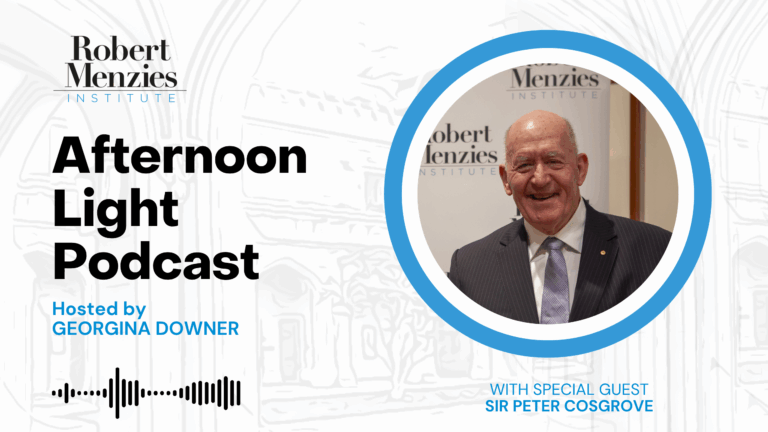
17 Jun, 2025
Sir Peter Cosgrove on Vietnam, his experience in the ADF & Australia's current defence concerns: "underscore and capitalise DETERRANT"


Sir Peter Cosgrove on Vietnam, his experience in the ADF & Australia's current defence concerns: "underscore and capitalise DETERRANT"

Katti Williams on the design process that produced Melbourne's Shrine of Remembrance: "Surrogate Tombs"

David Day on Foundational Labor PM Andrew Fisher: "To the last man and the last shilling"

John Roskam & Zachary Gorman on the 2025 election & where to now for Australian liberalism: "Ideological Incoherence"

Bob Crawshaw on the communications revolution that defeated Bank Nationalisation & won the 49 election: "Highly Orchestrated"

Mark Johnston on the story of Don Company: "Astonished by how brave a group of people could be"

Andrew Levidis on Kishi Nobusuke & the Australia-Japan Reconciliation: "Historians should never say miracle"
Sign up for our monthly newsletter to hear the latest news and receive information about upcoming events.

Sign up for our monthly newsletter to hear the latest news and receive information about upcoming events.